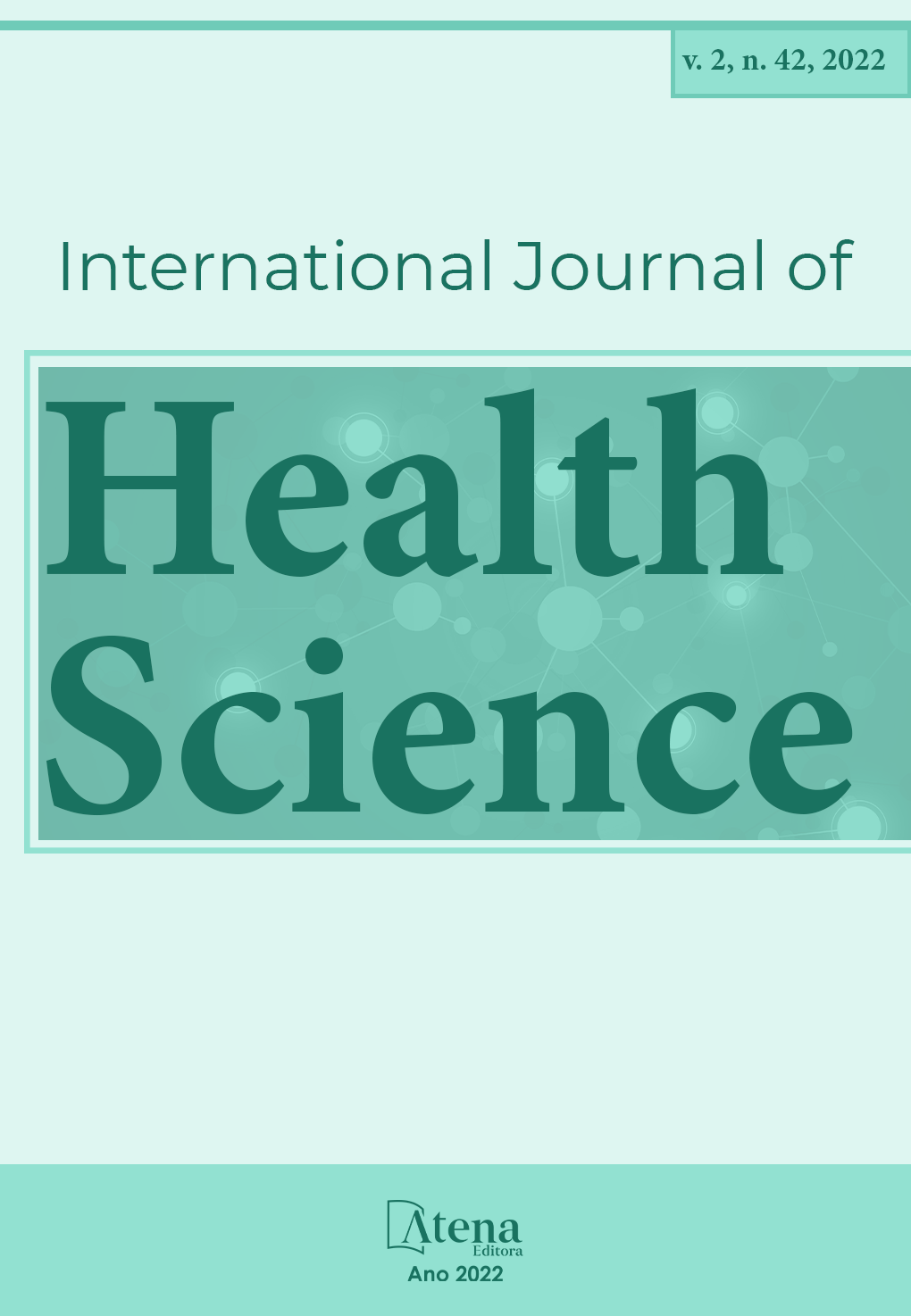
EXPERIENCES OF NURSES CONTAMINATION BY SARS-COV-2
Introduction: The experiences of contamination by SARS-COV-2, in nurses, are a consequence of work compliance, ethical, continuous, exhausting, in a context of isolation and overload, and can only be perceived by those who lived them, in their subjective expressions, personal. Objective: To recognize the perceptions of the contamination experiences of nurses infected with SARS-COV-2, during confinement; Methodology: cross-sectional, qualitative and phenomenological study, carried out from the content analysis methodology, based on two elements: the sentence construction and the phoneme - to the data, collected through the application of a semi-structured interview -via online- to a sample of 33 infected and isolated nurses, from the north, center and south of Portugal. The sample is mostly female (68.8%), in the age group (34.4%) between 21-30 years old, lives with the family (84.8%), with at least three people ( 57.5%). The analysis identified seven strong categories and six weak categories. Results: From the analysis of the discursive components in each Interview (E), a Categorical Tree (CA) emerged with two generations of categories, which express the senses and meanings attributed by the participants to the phenomenon under study. The first global category: “Living with SARS-COV-2 contamination”, inserts the first-generation category: “Changes in life in isolation” (1.1), which in turn gives rise to two second-generation categories: “Difficulties/Disorders” ( 1.1.1) and “Adaptive Strategies” (1.1.2). From the subcategory “Difficulties/Disorders” (1.1.1), seven third-generation categories emerge about the contexts of difficulties: “Emotional” (1.1.1.1), “Personal” (1.1.1.2), “Family” (1.1.1.3 ), “Social” (1.1.1.4), “Professional” (1.1.1.5), “Financial” (1.1.1.6) and “Good in life” (1.1.1.7).From the subcategory “Adaptive Strategies in the Context of Contamination/ isolation” (1.1.2), three third-generation categories emerge regarding the strategies applied: “Personal” (1.2.2.1), “Family/friends” (1.2.2.2) and “Everything is fine” (1.2.2.3). In turn, the subcategory “Personal strategies” (1.2.2.1) includes three fourth-generation categories: Expressions of personal organization, at the “Biological” level (1.2.2.1.1), “Psychological” (1.2.2.1.2) and “Social”(1.2.2.1.3). Conclusions: The perceptions of the experiences of contamination of nurses infected by SARS-COV-2, during confinement, took place predominantly at an emotional level (153 discursive units - UD) and the adaptive strategies, mostly adopted, took place at a personal level (63 UD) . The complex contextualization of the phenomenon makes it pertinent to propose new studies on this reality lived alone.
EXPERIENCES OF NURSES CONTAMINATION BY SARS-COV-2
-
DOI: 10.22533/at.ed.1592422229073
-
Palavras-chave: Contamination; SARS-COV-2;Nurses; Isolation
-
Keywords: Contamination; SARS-COV-2;Nurses; Isolation
-
Abstract:
Introduction: The experiences of contamination by SARS-COV-2, in nurses, are a consequence of work compliance, ethical, continuous, exhausting, in a context of isolation and overload, and can only be perceived by those who lived them, in their subjective expressions, personal. Objective: To recognize the perceptions of the contamination experiences of nurses infected with SARS-COV-2, during confinement; Methodology: cross-sectional, qualitative and phenomenological study, carried out from the content analysis methodology, based on two elements: the sentence construction and the phoneme - to the data, collected through the application of a semi-structured interview -via online- to a sample of 33 infected and isolated nurses, from the north, center and south of Portugal. The sample is mostly female (68.8%), in the age group (34.4%) between 21-30 years old, lives with the family (84.8%), with at least three people ( 57.5%). The analysis identified seven strong categories and six weak categories. Results: From the analysis of the discursive components in each Interview (E), a Categorical Tree (CA) emerged with two generations of categories, which express the senses and meanings attributed by the participants to the phenomenon under study. The first global category: “Living with SARS-COV-2 contamination”, inserts the first-generation category: “Changes in life in isolation” (1.1), which in turn gives rise to two second-generation categories: “Difficulties/Disorders” ( 1.1.1) and “Adaptive Strategies” (1.1.2). From the subcategory “Difficulties/Disorders” (1.1.1), seven third-generation categories emerge about the contexts of difficulties: “Emotional” (1.1.1.1), “Personal” (1.1.1.2), “Family” (1.1.1.3 ), “Social” (1.1.1.4), “Professional” (1.1.1.5), “Financial” (1.1.1.6) and “Good in life” (1.1.1.7).From the subcategory “Adaptive Strategies in the Context of Contamination/ isolation” (1.1.2), three third-generation categories emerge regarding the strategies applied: “Personal” (1.2.2.1), “Family/friends” (1.2.2.2) and “Everything is fine” (1.2.2.3). In turn, the subcategory “Personal strategies” (1.2.2.1) includes three fourth-generation categories: Expressions of personal organization, at the “Biological” level (1.2.2.1.1), “Psychological” (1.2.2.1.2) and “Social”(1.2.2.1.3). Conclusions: The perceptions of the experiences of contamination of nurses infected by SARS-COV-2, during confinement, took place predominantly at an emotional level (153 discursive units - UD) and the adaptive strategies, mostly adopted, took place at a personal level (63 UD) . The complex contextualization of the phenomenon makes it pertinent to propose new studies on this reality lived alone.
-
Número de páginas: 20
- Maria Augusta Romão da Veiga Branco
- Emília Gomes


